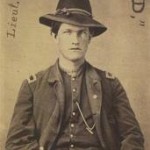 Tennessee was the key to Union victory in the Civil War. The waterways of this state directly fed and armed the confederacy. The control of these vital routes would begin a strangle hold on the rebellion leading to the South’s ultimate defeat.
Tennessee was the key to Union victory in the Civil War. The waterways of this state directly fed and armed the confederacy. The control of these vital routes would begin a strangle hold on the rebellion leading to the South’s ultimate defeat.
Bummer believes that most folks think of the battles of the Eastern United States as the most important of the Civil War. The bloody conflicts of First Manassas, Balls Bluff, Gaines’ Mill, Antietam and Gettysburg and many others are ingrained in the minds of most, as proof that the Eastern Theater was the most important of the war. Early in the civil conflict the defeats suffered by Union forces were the result of the inept abilities of Union Generals and their self-centered, political ambitions. In addition, the Union troops lacked training and experienced line officers to direct them. Also, the mind-set of Washington’s governmental elite felt that the South’s rebellion would be short-lived and be concluded in less than 90 Days. Only one state suffered more battles than Virgina and that was Tennessee.
Union Generals Halleck, Grant, Sherman, Sheridan, Thomas, Rosecrans and Schofield, would hone their skills in the many battles in Tennessee. These leaders learned that victories on the field of battle not only impacted Southern confidence, but sustained political war sentiment in the East. Grant and Sherman soon realized that in order to crush the rebellion, the Southern civilian population would have to experience the ramifications of “total war” and that cities and towns should not be their objectives. Instead the focus should be concentrated on the complete annihilation of the rebel armies.
Significant battles of Tennessee include Fort Henry, Fort Donelson, Shiloh, Memphis, three battles of Chattanooga, Murfreesboro, Stones River, Thompson’s Station, Fort Sanders, Fort Pillow, Memphis, Jacksonville, Franklin and Nashville. In addition, many other crucial conflicts in this state led to the eventual command of the rivers that fed the Mississippi. In conjunction with the U.S. Naval blockade of the South’s seaports, the control of the Mississippi ensured the South’s inability to feed and supply the rebellion.
Bummer


The officer in the photo was the second in command of the company that my great great grandfather (Solomon Osburn) and his son (Hiram) faught for. Both died during the course of the war. Just thought that you might like to know.
Bill,
Thanks for sharing the info regarding your kin. Sometimes the old photos are difficult to identify. Stop by often, a new post almost every day. Thanks for following!
Bummer